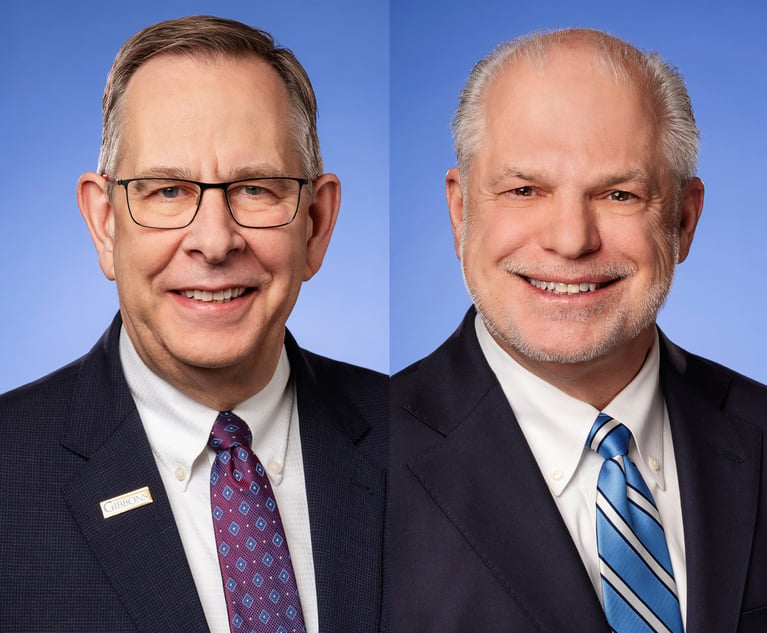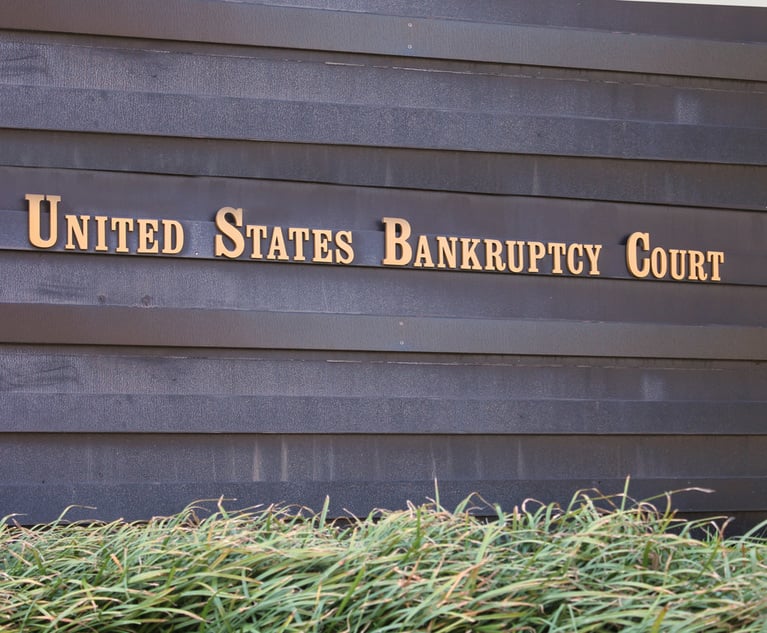
June 07, 2024 | New York Law Journal
Bankruptcy Rule 9031: Out of Date and Out of Touch—Why an Amendment is Long OverdueRule 9031 of the Federal Rules of Bankruptcy Procedure prevents all bankruptcy judges and, if broadly interpreted, any federal judge hearing bankruptcy cases and proceedings, from appointing special masters. The rule is outdated and should be repealed or amended to accord with the reality of today's complex Chapter 11 cases.
By Mark B. Conlan and Noel L. Hillman
9 minute read

June 07, 2024 | New York Law Journal
Who Enforces New York's Good Cause Law?In this article, Erica F. Buckley provides an overview of the Good Cause Eviction Law, the role of the Division of Housing and Community Renewal and whether she believes the New York Attorney General will seek to enforce Good Cause.
By Erica F. Buckley
9 minute read

June 07, 2024 | New York Law Journal
The New Venue Debate: Inefficiencies of Applying a Dated Statute to a Modern WorldWhile debtors' selection of venue in Chapter 11 cases and the relevant statutes have been the subject of historical debate, the scrutiny of venue has noticeably increased with a material uptick in venue inquiries and formal objections.
By William E. Curtin, Thomas R. Califano, Anthony R. Grossi and Veronica A. Courtney
8 minute read

June 07, 2024 | New York Law Journal
Are Bankruptcy Avoidance Actions Becoming a Marketable Asset Class?Courts have limited standing to pursue those actions to parties who can be classified as a "representative of the estate" under Section 1123 of the Bankruptcy Code. The Fifth Circuit's recent ruling in 'In re South Coast Supply' may change all that.
By Dan McElhinney and Jorian Rose
9 minute read

June 06, 2024 | New York Law Journal
If Non-Competes Are Out, What's In? Alternative Ways Employers Can Protect Their CompaniesThe FTC recently voted to approve the final Non-Compete Clause Rule, effectively banning most forms of non-compete agreements. In the event the FTC's Final Rule does become effective, employers should be prepared with alternatives to non-competes.
By Damian R. Cavaleri and Rose Isaacs
6 minute read

June 05, 2024 | New York Law Journal
Court of Appeals Evidence Decisions: A Potpourri of Rules for Criminal and Civil ActionsThe 2023–2024 term of the Court of Appeals has seen a large uptick in the number of appeals decided by the court as compared to previous terms. This is especially true as to decisions deciding important and significant evidence issues.
By Michael J. Hutter
13 minute read

June 05, 2024 | New York Law Journal
Civil Rights Attorneys' Fees in Peril at the Supreme CourtFor civil rights lawyers, attorneys' fees paid by the government play a critical role in funding work on behalf of indigent clients and in deterring unlawful conduct by government actors. In April, however, the Supreme Court accepted for review a case that threatens to upend settled law across the federal circuits.
By Christopher Dunn
9 minute read

June 05, 2024 | New York Law Journal
Foreclosing on Collateral? Make Sure Your Sale Is Commercially ReasonableThe recently decided Southern District of New York case of 'CCO Condo Portfolio (AZ) Junior Mezzanine v. Feldman' hinged on whether a UCC Article 9 foreclosure was conducted in a commercially reasonable manner.
By Barbara M. Goodstein and Adam C. Wolk
10 minute read

June 04, 2024 | New York Law Journal
NY State Tax Appeals Tribunal Holds Management Services Are TaxableClients often unknowingly subject themselves to enormous liability by failing to charge sales tax in circumstances where the taxability is unclear. A recent example of this is the Tax Appeals Tribunal decision in 'Beeline.com'.
By Joseph Lipari and Aaron S. Gaynor
7 minute read

June 04, 2024 | New York Law Journal
Developments in Mental Health Parity LitigationThis article analyzes the NQTL Regulations and two recent decisions adopting standards for pleading a claim under the Parity Act based on an alleged violation of the NQTL Regulations, and offers several steps employers and claims administrators should consider in seeking to avoid litigation of Parity Act claims.
By Nicholas J. Pappas and Andrew Holly
10 minute read
Trending Stories
- 1Northwestern University Pritzker Law School Hit With Reverse Discrimination Lawsuit
- 2Biden Will Be First Lawyer-President Without a JD From the 'T-14' in a Century
- 3Settlement reached in lawsuit over death of clerk prior to $51 million jury award
- 4Dechert to Close Chicago, Hong Kong and Beijing Offices
- 5The Week in Data: A Look at Legal Industry Trends by the Numbers
More from ALM
- Morgan & Morgan Class Action Attorneys Detail Pathway to Success Within Cybersecurity and Data Privacy Practice 1 minute read
- Holwell Shuster & Goldberg Partners Leverage 'Hostile' Witnesses to Secure $101 Million Verdict Against Walmart 1 minute read
- Legal Speak at General Counsel Conference Midwest 2024: Mike Andolina, Partner, White & Case 1 minute read



